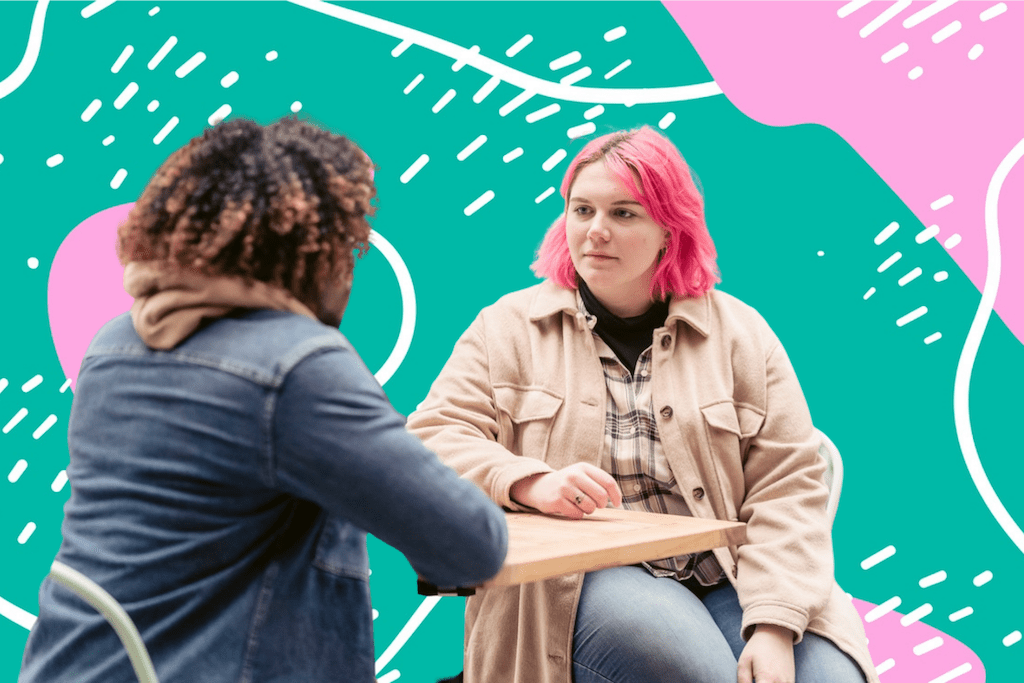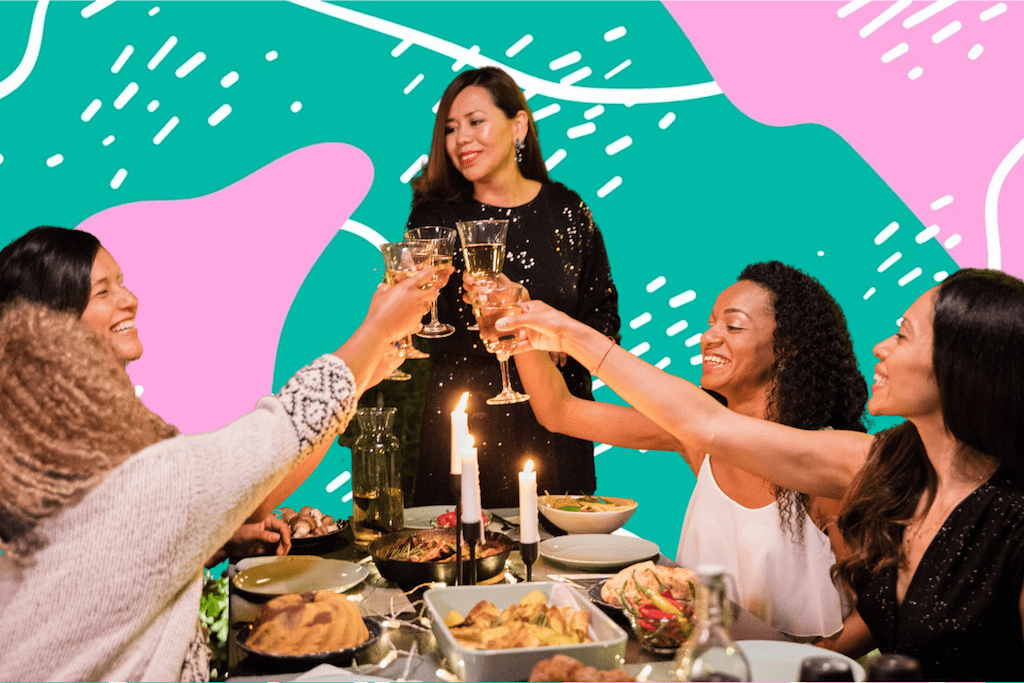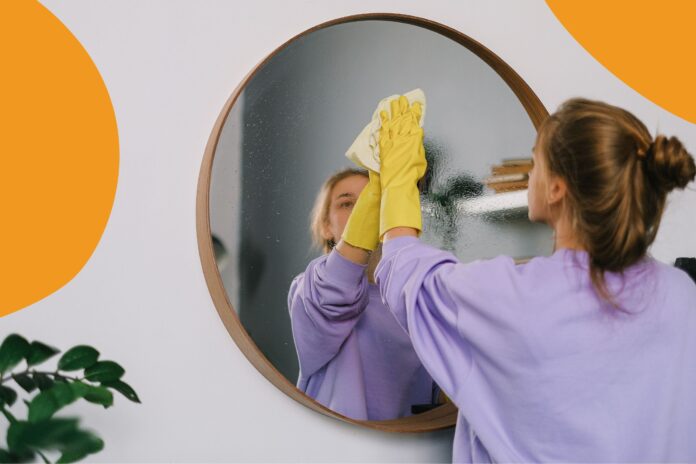There’s nothing quite like socialising with friends and family, and the warm, convivial feeling it brings. For a few hours, it can feel like all is right with the world and that the stuff raging beyond is just an illusion.
However, many of us are dealing with pandemic fatigue that’s made us less sociable, and, whisper it, reluctant to put ourselves out there anymore. As Greater Good explains, “Loneliness, rather than prompting us to connect, actually makes us withdraw, according to research. We start to feel unworthy of our relationships, worried that people are judging us or don’t enjoy being around us”.
An 18 month spell spent largely in our own homes with stress levels high has led, for many, to a newfound, unwelcome trepidation about social situations now the UK has opened up again.
It shouldn’t have to be this way. Don’t let stage fright, fear or uncertainty stop you from enjoying your social life; here are 10 ways to be more sociable today.
REST ASSURED THAT WE ALL NEED SOLITUDE
Hmm, we realise this runs somewhat counterintuitive to being more social. However, we all need to embrace solitude and cherish a little ‘me time’ in the name of being more social.
As psychologist Virginia Thomas explains in Psychology Today, “aloneliness”—the opposite of loneliness, the lack of solitude—is a real problem. People who are lacking in solitude can “end up feeling irritable, overwhelmed, or drained”, so before you focus on getting out there and socialising, make sure you’re taking care of your own wellbeing.

GET MORE SLEEP
Ask yourself how many times you’ve cancelled on a friend because you were too tired? Or how difficult a social event was because you were only operating at about 1%? Well, did you know that poor sleep can wreak havoc on your social life as sleep-deprived individuals are less socially attractive to others?
Research by the University of California reveals that if you haven’t slept enough, you may seem more socially unacceptable to others. Sleep-deprived individuals are more likely to feel lonely and less inclined to interact with others, too.
Does this mean that your well-rested pals are social butterflies? Not entirely, as the study also suggests that someone who is otherwise well-rested may even feel lonely after a brief encounter with a sleep-deprived person. This, in turn, can potentially trigger a viral contagion of social isolation.
It’s a vicious cycle, as Dr Matthew Walker, professor of psychology and neuroscience at Berkeley, points out; “the less sleep you get, the less you want to socially interact. In turn, other people perceive you as more socially repulsive, further increasing the grave social-isolation impact of sleep loss.”
The latest thinking suggests that adults need somewhere between seven and nine hours sleep a night to properly recharge their batteries. If you think that a lack of sleep is affecting your social life, and you’re keen to stay socially active and make new friends, then it might be time to place more emphasis on the importance of sleep.
DON’T BE A RUBBISH REPLIER
There are two types of people in this world, those who reply to WhatsApp messages promptly and those who wake up in the middle of the night in a panic, realising they’ve neglected their inbox for weeks. Even for those of us who fall into the former category, it’s a familiar story; you screen a message, thinking we’ll reply later, only to remember a week down the line.
If you find yourself replying to every message with “so sorry, I’ve only just seen this”, then it’s time to make your rubbish replying a thing of the past.
Recall what it’s like when someone doesn’t reply to your message. Perhaps a sense of crippling anxiety comes over you. Or maybe the lack of response leaves you believing that the other person doesn’t like you? This, we’re sure, is something that you never intentionally set out to make someone else feel.
So how do you leave your bad replying gene behind you? Actively reply to messages. Allow yourself a set time each day to sit down and reply to everyone. If you’re really busy, acknowledge the message and tell them you’ll reply later. And remember to!
Speaking of unsociable habits….

QUIT UNSOCIABLE HABITS
We all have a few bad habits, but most of us manage to keep them confines behind closed doors. But when you’re letting your bad habits become part of your public persona, it’s going to start putting friends off. Some bad social habits include…
Staring at your screen: When you’re with your friends, cherish the time you’re spending together, rather than being in contact with others via your phone. Kinda defeats the point of meeting up in person, don’t you think?
Being negative – No one wants to hang out with a Debbie Downer. End of.
Smoking – According to research back in 2007, 78% of smokers think that smoking is an ‘anti-social’ habit. There are, of course, others who think that social smoking is sociable, but that seems to be a diminishing group.
Most people don’t like smoking, it smells and causes bad breath, and the habit sees conversations at tables interrupted for those who need to go out for a puff then come back with the odour of cigarettes. If you’re slowly giving up, consider a vape, which can be more sociable; at least you won’t smell of smoke if you find the right one.
Being flakey: Cancelling plans leads to frayed relationships. To start with, don’t say yes to plans if your heart’s not in it, as you’ll most likely flake out of them at the last minute. This causes ruptures that are hard to heal.
BE A GOOD LISTENER & ASK QUESTIONS
One of the best ways of connecting with people is to practice active listening, rather than simply waiting for your turn to speak. In doing so, you’ll learn more about your friends, provide a supportive ear to someone’s problems, and invest in your relationships, nurturing understanding and compassion.
Matthias Mehl, PhD, the director of the Naturalistic Observation of Social Interaction explained to Good House Keeping that “Curiosity and empathy are two catalysts for meaningful social interactions”. We couldn’t agree more.
To help you become a better listener, try and practice ‘active listening’ which as Britsh Heart Foundation explains “can make your communication more effective and make the other person feel more valued. Some active listening steps recommended by BHF include not interrupting, not to plan what you’re going to say next as you can’t listen and prepare at the same time, not to impose opinions or solutions and by paraphrasing and summarising by starting a sentence with “Sounds like you are saying…””

PAY COMPLIMENTS TO PEOPLE
Compliments can boost a person’s self-esteem – for both giver and receiver! Indeed, when we pay a compliment, not only does it make the complimentee feel good, but it also amplifies our own self-confidence, too.
Yep, this one’s a virtuous, self-fulfilling circle, so set yourself a goal to compliment at least one person each day. Of course, you don’t want to be overly personal or effusive in your praise; this may come across as disingenuous or, worse, sleazy. Instead, be genuine, thoughtful and tactful with your compliments.
Read: 7 ideas for random acts of kindness to brighten up someone’s day
BRING OUT YOUR INNER HOST
Spending quality time together is vital for relationships to flourish. Whether you’re an extrovert or an introvert, hosting a gathering at your house can be a great way to be sociable whilst also managing the agenda. Host a bi-monthly dinner party or brunch, with friends coming to visit and luxuriating in each other’s company and your great cooking! Learn how to become the hostess with the mostest here.
If you’re a more one-on-one kind of person, why not invite your friends over for dinner separately? As Elite Daily explains “hanging out with just one of your friends every once in awhile doesn’t mean you are rejecting the amazing feels the whole group gives you”, it simply allows you to form closer bonds with your friends as individuals which helps make your group dynamic works.

GET INVOLVED WITH YOUR COMMUNITY
Being part of an engaged, active community gives us a sense of belonging and helps us give something back, too. So, consider volunteering for a local charity shop, donating your time to a homeless shelter, or picking up the shopping for those less fortunate. Check out the National Council for Voluntary Organisations (NCVO) to find opportunities to engage with your local community today.
BECOME A LOCAL SOMEWHERE
Find a spot that you love, whether it be a cafe, cocktail bar, the ‘club’ at the gym, beauty salon or even a library, and give it your patronage regularly. In doing so, you’ll find like-minded people with whom you can share experiences with and form a new social circle.
And the good news is that scientists believe that becoming a regular is actually good for your health. Studies show that regular pub patrons are more likely to have close friends who they can “call for support”, and are happier and more trusting than those who don’t regularly visit their local watering hole.
Moreover, those who drop into their local regularly feel “more engaged with their wider community.” And we could all do with a bit of that right now, don’t you think?
DON’T SWEAT THE LITTLE THINGS
We don’t mean literally here; a little perspiration is natural, after all. But it’s so easy to get caught up in self image and what other people think of you. It’s also easy to worry that you did something embarrassing or said something wrong the last time you engaged with friends or family. Indeed, many of us feel pressure to be interesting, some also feel pressure to be positive, or look a certain way…
Instead, be yourself and embrace your individuality when socialising. This is the real side of you, and it’s also the most charming version!
THE BOTTOM LINE
Humans are social creatures, dependent on the validation, support and even occasional criticism of their peers for survival. Spending time with loved ones is one of the best things you can do for your mental health, helping you live a longer, happier life. So, the next time someone suggests stepping out of your comfort zone, say yes, with arms wide open. You won’t regret it!





